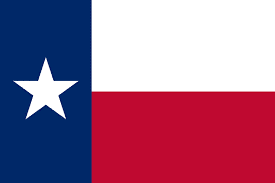
The European Commission has fined Rabobank €26.6 million for participating in a cartel concerning the trading of certain Euro-denominated bonds, together with Deutsche Bank. Deutsche Bank was not fined as it revealed the cartel to the Commission under the leniency programme.
The infringement
The products concerned by the cartel are Euro-denominated SSA bonds (Supra-Sovereign, Foreign Sovereign, Sub-Sovereign/Agency bonds) and Government Guaranteed bonds traded in the European Economic Area (‘EEA’).
The Commission investigation revealed that between 2006 and 2016 the two banks, through some of their traders, exchanged commercially sensitive information and coordinated their trading and pricing strategies.
The traders operated at Deutsche Bank’s EUR SSA desk in Frankfurt and at Rabobank’s Investment Grade Bonds desk in London. They used Bloomberg emails, instant messages and online chatrooms to exchange information concerning: (i) prices, volumes as well as current and future trading strategies and positions; (ii) the counterparties’ identities; and (iii) their requirements for buying or selling bonds. Traders adjusted their price levels and trading strategies based on these exchanges. This included inter alia coordination on prices to be offered and displayed on Bloomberg AllQ (all quotes for bonds) screens, which is a dealer-to-client electronic trading platform, and mutual warnings when the other bank’s indicative price on screen was considered to be too low or too high.
Fines
The fines were set on the basis of the Commission’s 2006 Guidelines on fines (see also MEMO).
In setting the level of fines, the Commission took into account, in particular, the value of sales for the products in question achieved by the cartel participants in the EEA, the serious nature of the infringement, its geographic scope and its duration.
Deutsche Bank cooperated with the Commission under the leniency programme (2006 Leniency Notice) and therefore received full immunity from fines for revealing the cartel, thereby avoiding a fine of almost €156 million. Rabobank received a fine of €26.6 million.
Background on bond markets
Bonds are debt securities paying a defined rate of interest, which enable entities to raise funding in international financial markets, and which are subsequently held as investments or traded like any other financial instrument.
Bonds are first issued for sale on the “primary market”, mainly via auctions or syndicates. Subsequently, bonds are traded between banks, brokers and investors on the “secondary market”. Bonds can be distinguished by the identity of the issuer, the currency in which they are denominated or even by the type of guarantor (government authority or financial institutions or other corporations).
Euro-denominated SSA bonds include three types of bonds: (i) Supra-Sovereign bonds issued by supranational institutions whose mandate extends across national borders, such as the European Investment Bank; (ii) Foreign Sovereign bonds issued by governments under a law different from their own and/or in a currency different from their own(e.g., Euro-denominated bonds issued by Sweden or Denmark); (iii) Sub-Sovereign/Agency bonds issued by governmental or government-related entities below the level of the central government, such as regions or municipalities, government-owned banks, infrastructure development bodies or social security facilities.
Government Guaranteed bonds offer a secondary guaranteed interest where principal payment will be made by a government authority upon default of the issuer. These bonds were issued for a limited period of time in response to the market conditions associated with the 2008 global financial crisis.
Procedural Background
Article 101 of the Treaty on the Functioning of the European Union (‘TFEU’) and Article 53 of the EEA Agreement prohibit cartels and other restrictive business practices, including collusion on selling and purchasing prices.
The Commission’s investigation started in May 2017 following an immunity application under the Commission’s 2006 Leniency Notice submitted by Deutsche Bank. In December 2022, the Commission sent a Statement of Objections to both banks detailing its competition concerns.
Fines imposed on companies for breaching EU antitrust rules are paid into the general EU budget. This money is not earmarked for particular expenses, but the contributions of all Member States to the EU budget for the following year are reduced accordingly. The fines therefore help to finance the EU and reduce the burden for taxpayers. In accordance with Article 141(2) of the EU-UK Withdrawal Agreement, this case is a “continued competence case”. The EU shall therefore reimburse the UK for its share of the amount of the fine once this has become definitive. The Commission will take care of collecting the fine, calculating the UK’s share and reimbursing it.
More information on this case will become available under the case number AT.40512 in the public case register on the Commission’s competition website, once confidentiality issues have been resolved. For more information on the Commission’s action against cartels, see its cartels website.
Leniency programme
The Commission’s leniency programme gives companies the opportunity to disclose their participation in a cartel and cooperate with the Commission during an investigation. A successful leniency applicant will either completely avoid a potentially high fine or receive a substantial reduction from it. Further information about the Commission’s leniency programme can be found here.
The Commission has recently published a Frequently Asked Questions document which provides guidance on its leniency policy and practice to potential applicants.
Whistleblower tool
The Commission operates a tool to make it easier for individuals or companies to alert it about anticompetitive behaviour while maintaining their anonymity. This tool protects whistleblowers’ anonymity through a specifically-designed encrypted messaging system that allows two way communications. The tool is accessible via this link.
Action for damages
Any person or company affected by anticompetitive behaviour as described in this case may bring the matter before the courts of the Member States and seek damages. The case law of the Court of Justice of the European Union and Regulation 1/2003 both confirm that in cases before national courts, a Commission decision constitutes binding proof that the behaviour took place and was illegal. Even though the Commission has fined the cartel participant concerned, damages may be awarded by national courts without being reduced on account of the Commission fine. Likewise, even though the Commission may have granted a cartel participant concerned immunity from fines under its leniency programme, damages may be awarded by national courts.
The Antitrust Damages Directive makes it easier for victims of anti-competitive practices to obtain damages. More information on antitrust damages actions, including a practical guide on how to quantify antitrust harm, is available here.
Quote(s)
Trustworthy and well-functioning bonds trading markets are crucial not only for the national authorities issuing bonds but also for the investors buying and trading them. Today we fine Rabobank for colluding with Deutsche Bank to distort competition when trading certain Euro-denominated bonds. We will remain vigilant and committed to preserve effective competition in financial markets.

NEWSLETTER SIGN UP
And receive exclusive articles on securities markets
As Technology Evolves, Asset Managers Adapt and Innovate
Citi Changes Organizational Structure
SEC Charges Virtu for Disclosures Relating to Information Barriers
ICE Futures Singapore Partners with CoinDesk Indices
Related articles
-
From The Markets
BNY to Custody Ripple USD Reserves
BNY will also provide its transaction banking services to integrate tradFi & crypto ecosystems.
07.10.2025 By Shanny Basar , Senior Writer -
From The Markets
Jefferies Contributes $500,000 to Texas Flood Relief
The donation includes funds from Jefferies and voluntary contributions from its employees.
07.09.2025 By Shanny Basar , Senior Writer -
From The Markets
Rishi Sunak Joins Goldman Sachs as Senior Advisor
Sunak was Prime Minister of the UK between October 2022 and July 2024.
07.08.2025 By Shanny Basar , Senior Writer -
From The Markets
Credit Agricole Takes 100% Control of CACEIS
The French bank acquired Santander’s 30.5% stake in CACEIS, its asset servicing subsidiary.
07.07.2025 By Shanny Basar , Senior Writer -
From The Markets
Citi Buys Minority Stake in HANetf
Europe’s first and largest ETF white label platform has record $7.7bn AUM.
07.03.2025 By Shanny Basar , Senior Writer





